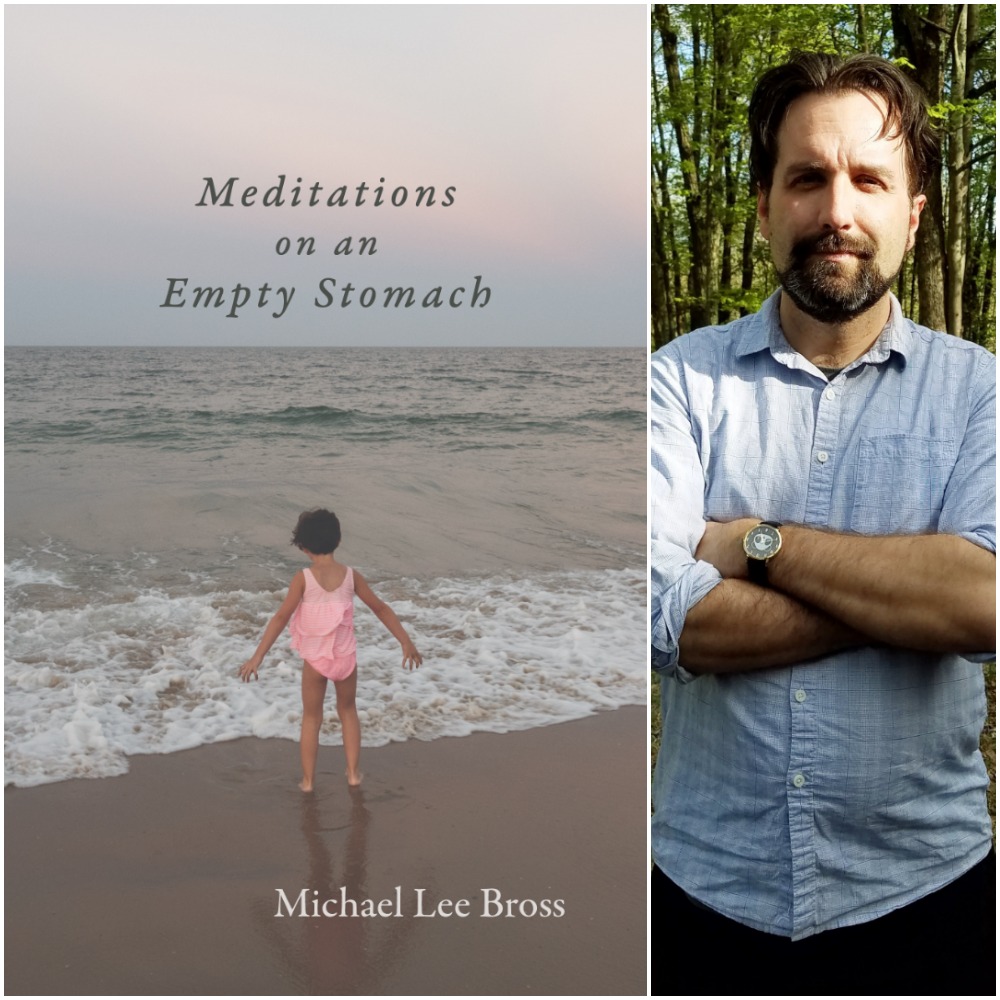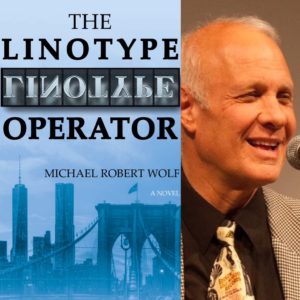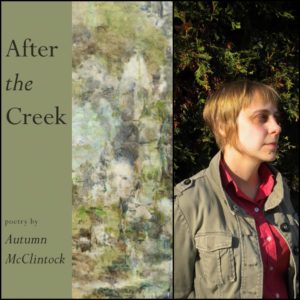In this elegant collection of poems; Michael Bross constructs an impossible equation that cannot be resolved without the magic wand of poetry. As thus, the poet beautifully succeeds, leaving us with a wealth of “satisfaction”. A bird-like poet. This is how I see Michael Bross. Simply, because the way birds weave their nests to let new life evolves, so does the poet, with every single poem. What we see, in this collection of poems, is an attempt to self-rebirth… to explain the unexplainable … to capture the nothingness in its fullness … to embody the concept of “hunger”, as an equivalent of nothingness … to conclude: we eat to survive falling in the nothingness. It is such a fresh metaphoric, philosophical, mixed with mystical touch, let’s call rituality. In that concept, the wealth of satisfaction comes as a result of the fusion of factuality and virtuality. In constructing his poems, Michael Bross boldly uses raw materials/ language, as in “Delivery Room”, calling “things” by their given names, weaving his poem, as if he is setting a dream- catcher web to ensnare the whole universe in one of its primitive appearances: Birth with all its subsequences. Repetition is used, intentionally, to stress structured meditation, elevating it to the level of rituality. Thus, the poet practices his rituality through various forms: individual words, as with “hunger”; “universe’; “gravity”, or as a whole phrase, as with “Meditation on an Empty Stomach”. It is no wonder the poet sounded perplexed when it comes to feeding his hungry daughter. However, baby food didn’t seem to be what Michael Bross is thinking of, for sure. In conclusion, after reading the whole collection, the reader will be introduced to fresh ritual of meditation. A ritual which evolves from inherited language with an uninherited concepts of nutrition.
–Fadel K. Jabr, author of Athariyun (Archaeologists) and Haliman a’borun Nashid (Dreamily I Cross the Anthem). In 1992, he won the al- Aqlam literary journal’s prize for poetry 5/19/2019. Fadel K. Jabr An Iraqi- American Poet & translator. He holds MFA in Translation in Poetry from Drew University . He is the author of six books of poetry published in Arabic and an upcoming Anthology of Iraqi Modern Poetry in English. He lives and works in Rochester, Minnesota. In 1992, he won the al- Aqlam literary journal’s prize for poetry
“What is hunger?” is the central question of this evocative collection. From bombs and colic to baby talk and stranger danger, Bross explores the deepest musings of fatherhood, intimate relationships, and our human responsibilities. Whether brooding or rejoicing, these poems encourage an awareness of internal conflicts by not only stimulating our sense of taste, but by questioning whether we truly know when our stomachs are empty and how much they can hold. With both tenderness and rage, this collection contemplates our darkest fears and our carnal desires with a vivid honesty about whether these Meditations on an Empty Stomach are “about me, or the lack of me.” I recommend you pull up a dining room chair or a yoga mat and spend time with these poems.
–Lynne McEniry, author of some other wet landscape
In Meditations on an Empty Stomach Michael Lee Bross is writing from the anti-thesis of patriarchy and masculinity. He is writing from and for his humanity. Within these twenty-one poems we find the meat and the stench of life, and also the delight. The delicious taste of hunger and of gluttony. Most importantly, we find a father and a husband navigating this landscape while gifting his family unconditional love. Bross exhorts “So we must laugh, with marshmallows stuffed between our teeth / and cling foolishly to the hope we might take the bile out of being hungry…” We need more men to write this vulnerably, this tenderly, and this fearlessly.
–Roberto Carlos Garcia, author of Melancolía (Cervena Barva Press) and black / Maybe: An Afro Lyric (Willow Books)






Reviews
There are no reviews yet.